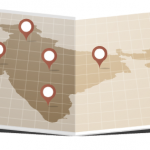Louise Vetter Became President & CEO of Lupus Foundation of America in 2024
 Louise Vetter, a longtime professional in the nonprofit healthcare field, took the helm as president and CEO of the Lupus Foundation of America (LFA) in July 2024. TR spoke with her this past fall. She is passionate about increasing patients’ access to care because she has learned through experience “what it means to have to advocate for yourself—and the power of transformative therapies.” She grew up with severe, chronically debilitating asthma, a condition she continues to manage daily. Twenty-five years ago, after a successful career in healthcare public relations, she wanted to transition to mission-based nonprofit work. Given her own healthcare history, the American Lung Association became “in every way the perfect fit.” Her decade with ALA launched her career in nonprofit health.
Louise Vetter, a longtime professional in the nonprofit healthcare field, took the helm as president and CEO of the Lupus Foundation of America (LFA) in July 2024. TR spoke with her this past fall. She is passionate about increasing patients’ access to care because she has learned through experience “what it means to have to advocate for yourself—and the power of transformative therapies.” She grew up with severe, chronically debilitating asthma, a condition she continues to manage daily. Twenty-five years ago, after a successful career in healthcare public relations, she wanted to transition to mission-based nonprofit work. Given her own healthcare history, the American Lung Association became “in every way the perfect fit.” Her decade with ALA launched her career in nonprofit health.
Ms. Vetter then moved to the Huntington’s Disease Society of America (HDSA), serving as its president and CEO for 15 years. The HDSA, she notes, shares some commonalities with the LFA. Both are focused on complex diseases. Under her leadership, the organization built a robust program of research, clinical support and professional education resources. “The needs for improved diagnosis and comprehensive care resonate in the lupus community much like the way they did with HD families,” she says.
As she has become more knowledgeable about the multisystem complexities of lupus, Ms. Vetter has come to appreciate the challenges and unpredictability of its course. In addition, due to the prevalence of lupus in women of color and those who are underserved, LFA is well poised to make a difference in multiple challenging areas. “There is nothing one-size-fits-all about lupus—from how it presents to how it’s treated, to how people access care,” she notes. “The LFA’s challenge is to really look into how we bring resources forward to close the gap in accessing care, especially in minority communities. We are a critical partner to make sure there is information, access and support that’s available in a culturally and community-sensitive way.”
Additionally, she says, “There’s definitely momentum in the field of lupus research right now—which is inspiring. I hope the community feels that momentum and that hope, so we can accelerate the development of new therapies and improve the quality of life for people with lupus as quickly as possible.”



